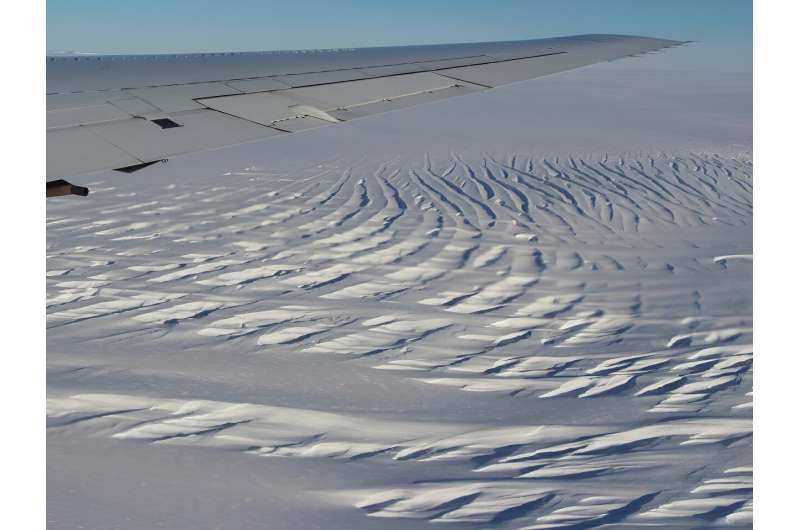This article has been reviewed according to Science X's editorial process and policies. Editors have highlighted the following attributes while ensuring the content's credibility:
fact-checked
trusted source
proofread
Icequakes in Antarctica linked to ocean tides

When the ground rumbles in Antarctica, it may be an icequake—like an earthquake but caused by the movement of ice, not rock. A new study by Penn State researchers found that these seismic events are driven by ocean tides at a major ice stream in West Antarctica.
Seismic monitors captured more than 2,200 icequakes over a five-year period at the Foundation Ice Stream in West Antarctica. Ice streams are fast-flowing regions of ice that act like a drainage system carrying ice from the land to the ocean. The scientists found that the icequakes largely occurred during spring tides, which follow a new or full moon and are characterized by larger tide height range.
"Tides are driven by the orbits of the moon and Earth, and it's fascinating to be able to make a connection between tides and ice processes on Earth," said Erica Lucas, who conducted the research while earning her doctorate in geosciences from Penn State.
They found the large majority of the icequakes at the Foundation Ice Stream occurred around the grounding line—the zone where the ice sheet transitions from sitting on bedrock to floating on the ocean. These floating ice shelves act as buttresses, preventing land ice from flowing into the ocean, so understanding the processes happening in these regions is especially important, the scientists said. Their findings are reported in the Journal of Geophysical Research: Earth Surface.
"If we can better understand the physical processes of ice flow then that's another piece of the puzzle in understanding ice mass loss from Antarctica," Lucas said. "Observing these icequakes at the Foundation Ice Stream may be one piece of the bigger puzzle."
Previous studies of tidal impacts on ice at the grounding line have relied on smaller datasets. The researchers benefited from a longer-term dataset collected on the Polar Earth Observing Network (POLENET). POLENET is a network of GPS and seismic stations installed across Antarctica.
"This study, although focused on just one ice stream in Antarctica, points to the growing importance of icequakes for investigating grounding line processes and understanding the dynamics of glaciers," said Andrew Nyblade, professor of geosciences, co-author of the study and Lucas' adviser at Penn State.
Using the data, the scientists observed a distinct seasonal shift in the time of day the seismic events occurred and that this was best attributed to the shift in the timing of daily high tide throughout the year.
The icequakes may be caused as stress accumulates between ice and bedrock on the steep hillslope located near the grounding line, the scientists said. As the tide rises, ice is being pushed upward, causing stress to build and then release, or slip. This process is known as "stick-slip."
"The Schmidt Hills slope, adjacent to the grounding line of the Foundation Ice Stream, may be an especially favorable location for seismic activity because the slope may sit above the water level at low tide and become a drier surface," Lucas said.
The scientists said further work could involve placing seismometers directly at the site to gather more precise data.
"I think it's exciting to find icequakes in new places," Lucas said. "They could be happening all over, and we just don't have instruments to observe them. So whatever information that we can pull from the data that we already have is very important."
More information: Erica M. Lucas et al, Tidally Modulated Glacial Seismicity at the Foundation Ice Stream, West Antarctica, Journal of Geophysical Research: Earth Surface (2023). DOI: 10.1029/2023JF007172
Provided by Pennsylvania State University




















